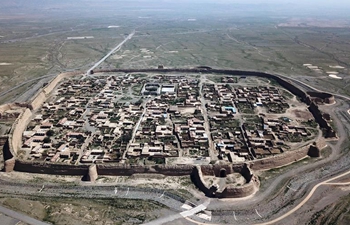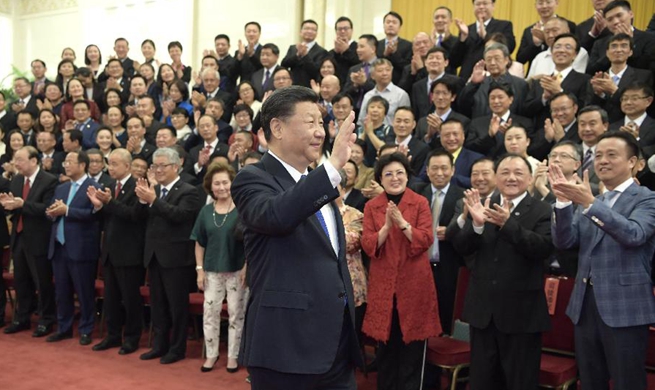by Eric J. Lyman
ROME, May 29 (Xinhua) -- Italy's struggles to keep its budget deficit under control could be setting it up for a penalty from the European Commission worth 3.5 billion euros (3.9 billion U.S. dollars).
However, analysts said a fine was unlikely, and that the Commission was more likely to force Italy to accept more restrictions for next year's budget, even as the head of the country's largest political party has vowed to flaunt budget rules.
Late last year, Italy and the European Commission locked horns for eight weeks over the size of the country's planned budget deficit for 2019. The Commission originally called for Italy's deficit to remain below 0.8 percent of its gross domestic product (GDP), while the government wanted a deficit equal to 2.4 percent of GDP.
The two sides finally settled on a deficit target of 2.04 percent of GDP, but due to robust government spending and slow economic growth, economists now say that the deficit figure by the end of 2019 could climb to 2.6 percent.
As a result, the European Commission has the right to charge Italy a "non-interest bearing deposit" of up to 0.2 percent of GDP, which works out to around 3.5 billion euros. Official word from the Commission is expected no later than June 5.
"A fine is probably just a threat at this point, a way to push Italy to the negotiating table to come up with a compromise solution," Umberto Cucchi, a policy analyst with Competere, a think tank, told Xinhua. "But any potential compromise in regard to the 2020 budget will run against the government's spending plans."
Matteo Salvini is Italy's deputy prime minister and head of the nationalist, Euroskeptic League party, which won most of the votes in Italy in last weekend's European Parliament (EP) elections. Salvini has vowed to use the League's strong election results to push for expensive priorities, most notably a switch to a flat tax that would cost at least 30 billion euros, thereby adding to the already large deficit.
Giuseppe De Arcangelis, a professor of international economics at Rome's La Sapienza University, said it was not a coincidence that the European Commission waited until after the EP vote to bring up Italy's budget problems.
"The commissioners no longer have to worry about how a difficult topic like this will affect their election prospects," he said in an interview. But that also means commissioners must contend with a shakeup in the Italian government's balance of power.
"Salvini will feel emboldened by the election results and so he will face the problem of pushing for his political priorities while the government will seek to keep the deficit within acceptable limits," the professor said. "The negotiations on the 2020 budget will be difficult for both sides."













